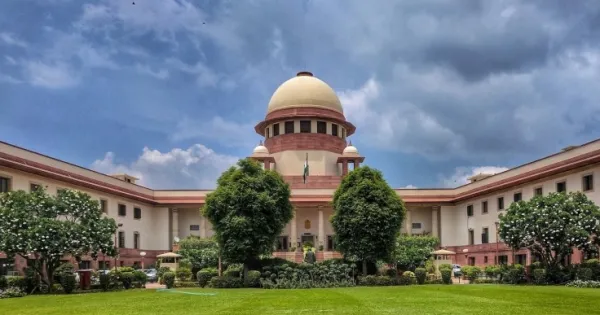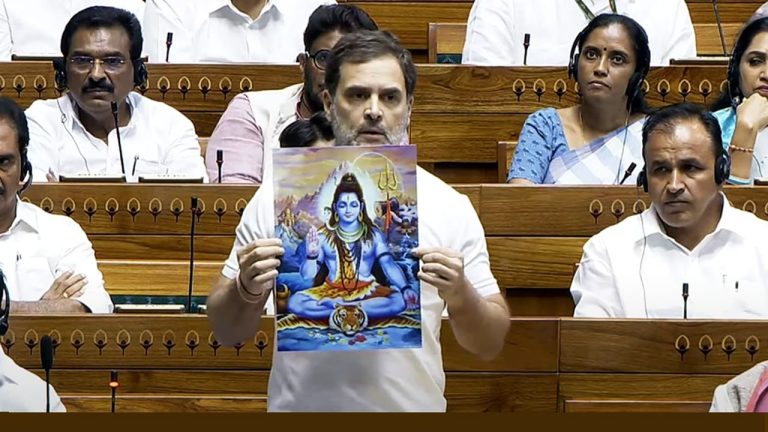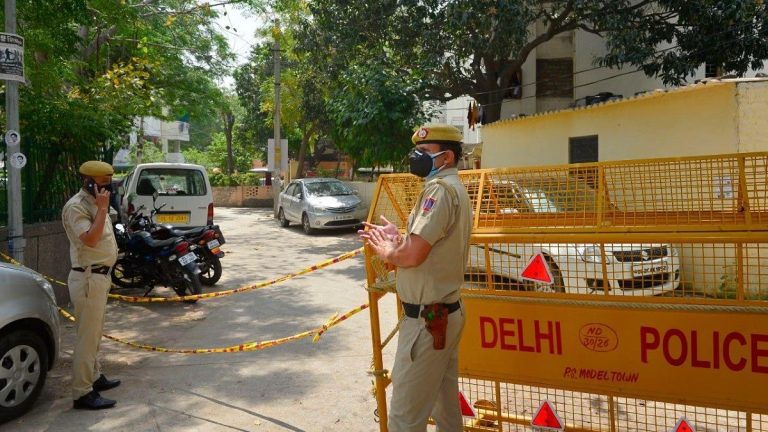The Supreme Court said, 'It is wrong to call someone' Mian-Tian 'and' Pakistani ', although it is not a crime like hurting religious sentiments.
Independent Prabhat. JP Singh.
The Supreme Court said that it would be wrong to call a person “Mian-Tian” and “Pakistani”, but it would not be a crime to hurt his religious sentiments.
Releasing the person from the charge under Section 298 of the Indian Penal Code (intentionally uttering words etc. with the intention of hurting religious sentiments), the court said, “The appellant is accused of hurting the religious sentiments of the informal by saying” Mian-Tian “and” Pakistani “.” Undoubtedly, the given statements are incorrect. However, this is not equal to hurting the religious sentiments of the informal. “
The bench of Justice BV Nagratna and Justice Satish Chandra Sharma was considering an appeal filed against a decision by the Jharkhand High Court, which refused to free the appellant. He was accused of calling a government employee 'Pakistani' while performing his official duties.
The court said in the February 11 judgment, “Of course, the given statements are indecent. But it is not equal to hurting religious sentiments. Therefore, we believe that the appellant should also be released under Section 298 IPC.”
In this case, the accused, Hari Nandan Singh, had sought some information from the Additional Collector under the Right to Information Act (RTI Act).
The above information was sent to him. But the accused was not satisfied. It is alleged that the accused called the clerk looking at the RTI case as indecent. The complainant caretaker clerk (Right to Information) complained about this. Hari Nandan Singh filed an appeal. In appellate proceedings, the appellate authority directed the complainant to personally inform Singh.
The complainant reached the house to give information to the house. Singh initially refused to accept the documents, but finally accepted him on the insistence of the complainant. However, Singh abused the complainant citing his religion and used criminal force against him while performing his official duties. Whose purpose was to prevent him from performing his duty as a public servant.
After this, an FIR was lodged against Singh under Section 298 (hurting religious sentiments), 504 (insulting with the intention of disturbing peace), 506 (criminal intimidation), 353 (attack or criminal force), and 323 (intentional injury).
A charge sheet was filed against the accused and the magistrate summoned Singh, accepting the above crimes. Hari Nandan Singh then filed an application for release under Section 239 of the Criminal Procedure Code (CRPC). In the order of March 24, 2022, the magistrate admitted that adequate content is available on records against Singh under sections 353, 298 and 504 of the IPC. However, the magistrate also admitted that there is a lack of evidence for punishable offenses under sections 323 and 506 of the IPC and released it under these sections.
The Sessions Court and the Rajasthan High Court dismissed the petition challenging the said order, after which an appeal was made in the Supreme Court. The apex court said that no attack or force was used by the appellant to implement Section 353 of the IPC. Therefore, the High Court should have released the appellant under Section 353 IPC.
The court also admitted that the appellant could not be accused under Section 504 of the IPC, as no work was done on its behalf which can disturb the peace and hence it should be released under Section 504 IPC.
Regarding Section 298, the court said that although its statements were indecent, a crime is not formed under the said provision. Therefore, the petition was accepted and the accused was released from all crimes.






